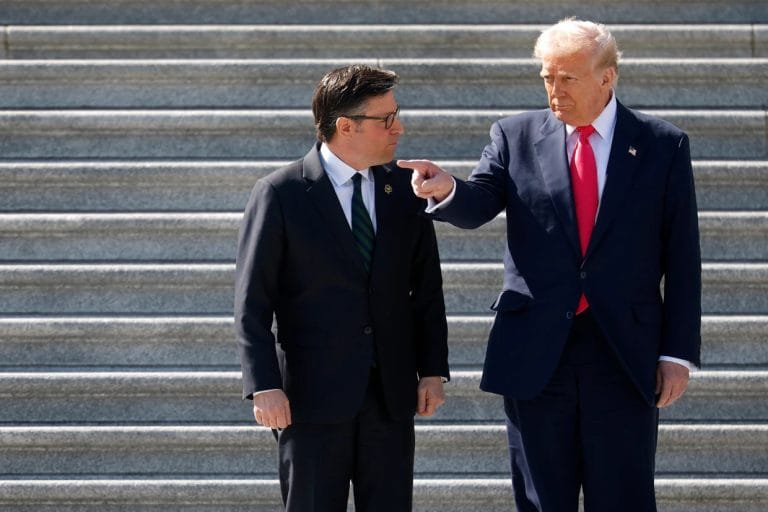🎧 Listen to This Article
The Consensus View: Wealth Taxes Are Politically Viable, Economically Necessary
The math is straightforward: letting the top marginal income tax rate snap back to 39.6% — from the current 37% — would raise an estimated $300 billion over the decade. In an era of swelling deficits, rising interest payments, and multi-trillion-dollar agenda bills, that seems prudent. Even 43% of Republicans say it’s the right move.
Public polling, from Pew to Gallup, reflects a steady rise in support for higher taxes on the wealthy. Democrats are eager to campaign on it. Some GOP lawmakers, like Rep. Chip Roy, have floated it as a means to reduce fiscal blowback from Trump’s sprawling legislative ambitions.
In short: taxing the wealthy to fund populist policy has never been more defensible.
The Alternative Logic: For Trump’s GOP, Optics Matter More Than Offsets
Yet the leadership is slamming the door shut.
“You’ll lose a lot of money if you do that… they leave countries,”
Trump warned from the Oval Office, dusting off the old “capital flight” argument.
“I would not expect that,”
added Speaker Mike Johnson, reaffirming the party’s decades-old aversion to tax hikes of any kind.
This isn’t about arithmetic. It’s about ideological continuity, donor alignment, and cultural branding. The modern GOP sees tax hikes on the rich not as fiscal tools but as political betrayal — even if it means kicking the can on deficits.
Even as the party courts working-class voters, the old orthodoxy lives:
Do not raise taxes on the people who fund campaigns, create PACs, or bankroll media amplification.
The message is clear: deficits may balloon, but the party’s loyalty to its traditional tax base is sacrosanct.
The Evidence: A Party Trapped by Its Own Coalition Shift
The 2024 election cemented a new reality: the GOP is now the party of non-college, working-class voters, while Democrats dominate among wealthier, suburban professionals. One might expect the GOP to adapt its tax priorities accordingly.
But Trumpism — despite its anti-elite posture — has never translated into redistributive fiscal policy. On the contrary:
- 2017’s Tax Cuts and Jobs Act skewed overwhelmingly toward corporations and high earners.
- Trump’s current platform includes tax exemption for tipped wages — a giveaway to the working poor — but still shuns new revenue from the rich.
- GOP leadership continues to frame any tax increase as an economic threat — despite overwhelming data showing that wealthy Americans are the least likely to flee, and that post-tax reform economic mobility gains have been modest at best.
Indeed, Trump’s warning about the rich leaving the country echoes rhetoric from France’s 2012 “millionaire tax” episode, but U.S. evidence tells a different story. IRS and Treasury studies have repeatedly shown that tax-induced migration is marginal — and mostly a myth.
The Strategic Trade-Off: Credibility vs. Continuity
If the top rate reverts to 39.6% as scheduled, it raises substantial revenue. If it doesn’t — and the Trump agenda passes in full — the fiscal math becomes politically toxic. Either:
- Deficits explode, weakening the GOP’s long-held claim as the party of fiscal responsibility; or
- Spending cuts deepen, risking backlash from the working-class base newly drawn to Trump’s populism.
Rejecting the millionaire tax hike narrows legislative maneuverability. It also creates a strategic inconsistency: You can’t sell tax cuts to low-income Americans while protecting high earners and pretending the debt won’t rise.
That’s not policy. That’s a shell game.
What Now: Republicans Need a New Fiscal Story — Fast
If the GOP insists on freezing the top tax rate and greenlighting a multi-trillion-dollar agenda, it must articulate:
- Where the cuts come from (defense is off-limits; entitlements are political suicide)
- How to close the gap without enraging its own new voters
- Why high earners deserve continued protection amid broad economic insecurity
Absent that, the party faces a looming contradiction: a populist message with an elite-friendly tax spine.
Democrats are already exploiting it.
“Extremists are too busy trying to cut taxes for their super rich donors,”
House Minority Leader Hakeem Jeffries posted this week.
Unless Republicans pivot — either by identifying large-scale offsets or rethinking the top rate — this line of attack will only intensify.
Underpriced Risk: Tax Policy as Electoral Liability
The 2025 tax debate is more than policy. It’s a referendum on which side of the class war each party truly represents.
The GOP’s insistence on shielding the top 1% — even when some members dissent — risks alienating swing voters who now expect a Trump-branded populism with working-class substance, not just tone.
If the millionaire tax dies without a replacement plan, Republicans may find themselves on the wrong side of their own coalition’s expectations.
For further details, clarification, contributions, or any concerns regarding this article, please contact us at editorial@tax.news. We value your feedback and are committed to providing accurate and timely information. Please note that our privacy policy will handle all inquiries



